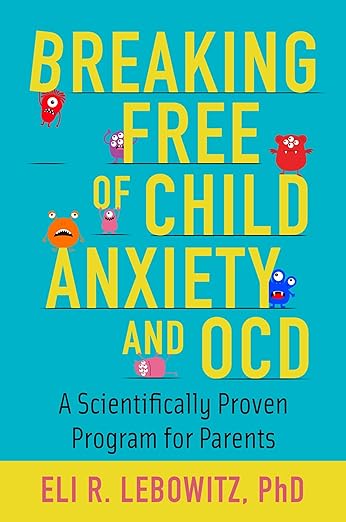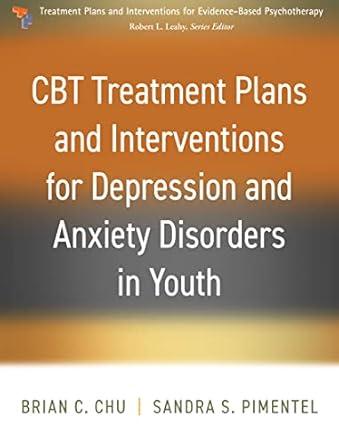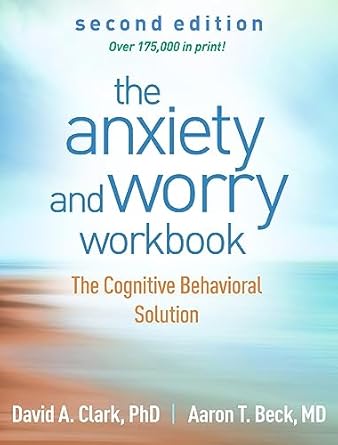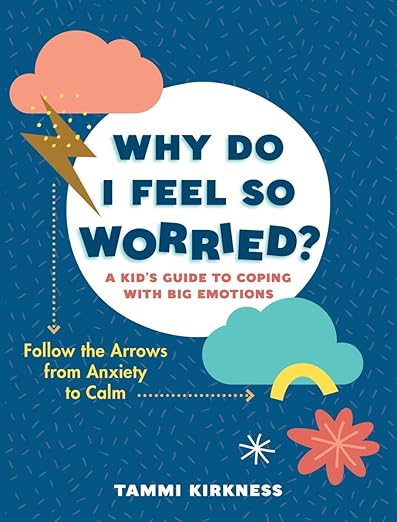Anxiety Disorders
Many people experience feelings of anxiety from time to time. Anxiety disorders, however, are conditions that bring persistent, overwhelming feelings of anxiety and fear, which may worsen over time. Anxiety disorders can affect people of all ages, including children and adolescents.
It is common for an anxiety disorder to accompany depression, eating disorders, substance abuse, or another anxiety disorder. Anxiety disorders can also co-exist with illnesses such as cancer or heart disease. In such instances, the accompanying disorders will also need to be treated.
From Our Collection
Different Kinds of Anxiety Disorders
Generalized Anxiety Disorder:
Constant, exaggerated worrisome thoughts and tension about everyday routine life events and activities, lasting at least six months. Almost always anticipating the worst even though there is little reason to expect it; accompanied by physical symptoms, such as fatigue, trembling, muscle tension, headache, or nausea.
Obsessive-Compulsive Disorder:
Repeated, unwanted thoughts or compulsive behaviors that seem impossible to stop or control.
Panic Disorder:
Repeated episodes of intense fear that strike often and without warning. Physical symptoms include chest pain, heart palpitations, shortness of breath, dizziness, abdominal distress, feelings of unreality, and fear of dying.
Phobias:
Two major types of phobias are social phobia and specific phobia. People with social phobia have an overwhelming and disabling fear of scrutiny, embarrassment, or humiliation in social situations, which leads to avoidance of many potentially pleasurable and meaningful activities. People with specific phobia experience extreme, disabling, and irrational fear of something that poses little or no actual danger; the fear leads to avoidance of objects or situations and can cause people to limit their lives unnecessarily.
Post-Traumatic Stress Disorder:
Persistent symptoms that occur after experiencing or witnessing a traumatic event such as rape or other criminal assault, war, child abuse, natural or human-caused disasters, or crashes. Nightmares, flashbacks, numbing of emotions, depression, and feeling angry, irritable or distracted and being easily startled are common. For more information, see Post-Traumatic Stress Disorders.
Effective Treatments for Anxiety Disorders
A number of medications that were originally approved for treating depression have been found to be effective for anxiety disorders as well. Other anti-anxiety medications include groups of drugs called benzodiazepines and beta-blockers. If one medication is not effective, others can be tried.
Two clinically-proven effective forms of psychotherapy used to treat anxiety disorders are behavioral therapy and cognitive-behavioral therapy. Behavioral therapy focuses on changing specific actions and uses several techniques to stop unwanted behaviors. Cognitive-behavioral therapy teaches patients to understand and change their thinking patterns so they can react differently to the situations that cause them anxiety.
Source: National Institute of Mental Health
Screening Tools
Self-Help Groups
Apps
ACT Coach
 Acceptance and Commitment Therapy (ACT) aims to help you live with unpleasant thoughts, feelings, and impulses without avoiding them or being controlled by them. This app was developed for veterans, service members, and other people who are in ACT with a therapist.
Acceptance and Commitment Therapy (ACT) aims to help you live with unpleasant thoughts, feelings, and impulses without avoiding them or being controlled by them. This app was developed for veterans, service members, and other people who are in ACT with a therapist.
Learn more on the VA website.Clear Fear
Face your fear with the Clear Fear app and learn to reduce the physical responses to threat as well as changing thoughts and behaviors and releasing emotions.
Learn MoreHappify
Brings you effective tools and programs to help you take control of your feelings and thoughts.
Learn MoreHow We Feel
A free app to help people better understand their emotions and find strategies to help them navigate their emotions in the moment.
iChill
A free app that teaches six wellness skills from the Trauma Resiliency Model (TRM)® and Community Resiliency Model (CRM)® to help you manage sensations associated with trauma and stress, enhancing your well-being.
Learn MoreMindfulness Coach
 Practicing mindfulness means grounding yourself in the present moment. Mindfulness has been shown to be helpful for reducing stress and coping with unpleasant thoughts and emotions. Mindfulness Coach will help you practice mindfulness meditation.
Practicing mindfulness means grounding yourself in the present moment. Mindfulness has been shown to be helpful for reducing stress and coping with unpleasant thoughts and emotions. Mindfulness Coach will help you practice mindfulness meditation.
Learn more on the VA website.MindShift CBT
Uses scientifically proven strategies based on Cognitive Behavioral Therapy (CBT) to help you learn to relax and be mindful, develop more effective ways of thinking, and use active steps to take charge of your anxiety.
Learn MoreSpiral Up
A free neuroscience-based app that helps you process emotions and release stress in minutes.
Learn MoreUCLA Mindful App
With this easy-to-use app, you can practice mindfulness meditation anywhere, anytime.
Learn More
Videos
Podcasts
Trainings
- Anxiety in Kids and Teens 101 (McLean Hospital)
- Anxiety in the Transition to Adulthood (Assocation for Behavioral and Cognitive Therapies)
- Is There a Future for Precision Mental Health Care for Anxiety Disorders in Children? (Yale)
- Neuroscience-Informed Treatments for Anxiety and Depression (University of California San Francisco Department of Psychiatry Grand Rounds)
Reading, Writing and Resilience: Addressing Back to School Anxiety (American Academy of Pediatrics)
Fact Sheets
Curricula & Lesson Plans
- REBT-Informed Treatment for Anxiety and Depression: Facilitator's Guide
From the Department of Veterans Affairs
- REBT-Informed Treatment for Anxiety and Depression: Patient Workbook
From the Department of Veterans Affairs
Locate a Treatment Facility
Research & Data
- National Institute of Mental Health: Statistics
Provides prevalence statistics for various mental disorders.
- PubMed
PubMed comprises more than 20 million citations for biomedical literature from MEDLINE, life science journals, and online books. Citations may include links to full-text content from PubMed Central and publisher websites.




